“Our Culture is Our Strength,” says St. Lucia Community Partner
Global Volunteers co-founder Michele Gran talked with Global Volunteers’ Community Partner Camillus Laurencin along with Country Manager Chemida Popo-Cox in St. Lucia about the power of community in the face of adversity. Read on for lessons from the resilient people of Anse la Raye during our worldwide coronavirus crisis.
First the churches closed; then the schools, restaurants and markets – all social threads binding St. Lucia’s community fabric tightly together. At the same time, tourism was halted to prevent the COVID-19 virus from overrunning the island’s healthcare system. Both the farming and fishing industries declined significantly. In a village relying on fishing, farming and tourism for income, the further loss of social interaction threatened to fray the edges of Anse la Raye’s society itself.
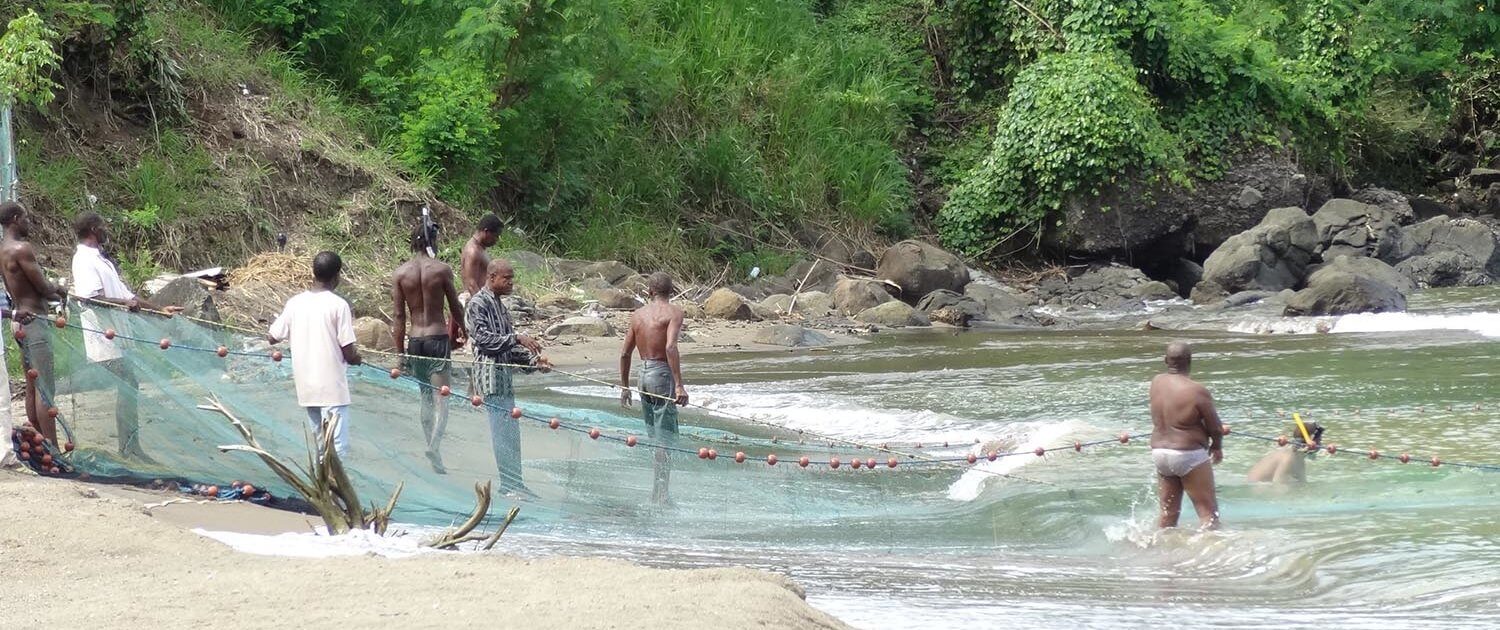
“I cannot understand how most people in the community survive,” says Global Volunteers’ St. Lucia Community Manager Chemida Popo-Cox, reflecting on the layers of stress for people who already struggle to earn a living. Most families live a subsistence existence in good times, and have scarce ground to endure economic, political and natural disasters. But despite the persistent poverty – or perhaps because of it – local people cultivate a rare resilience that allows them to bob atop the waves of life’s storms. Their safety net: Mutual support and deep friendships.
“It takes courage, patience and forbearance to get through a path strewn with obstacles… The more physical and/or emotional pain they inflict, the sweeter and greater the reward or blessing.”
Peter Josie, St. Lucia politician and trade unionist in The Voice of St. Lucia
“The challenge has been (the curtailment of) our social life,” says Camillus Laurencin, director of CARE, an alternative school for adolescents, and Global Volunteers community partner in Anse la Raye. “We are a very social people, and many are spiritual as well. It (social distancing) affected people, because they couldn’t gather as a congregation at churches.” And, in Anse la Raye, Church is a social event.
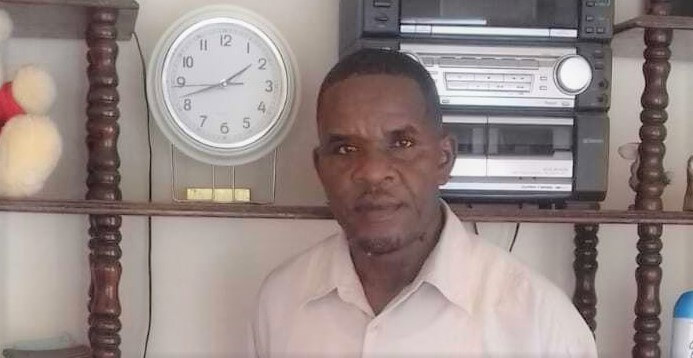
St. Lucians believe in hospitality. It’s practiced during worship, on the streets, and in business settings. It sustains them during the worst of times. But, COVID-19 restrictions have infringed on that legendary hospitality. Social distancing and face coverings are contrary to the open-hearted St. Lucian culture, which is all about wide smiles and warm hugs – and not reserved for only those they know. Offering hospitality to others lifts each person up in a spirit of unity and respect. It’s what’s earned St. Lucia the reputation as a reliably enjoyable vacation destination.
“That’s why we’re called the friendliest island,” Chem said. “We are one of the most hospitable places in the world.” “We are always talking to one another. It is automatic. We know the environment we are living in and we try to see the little we can do to make things better for each other. It happens all the time.”
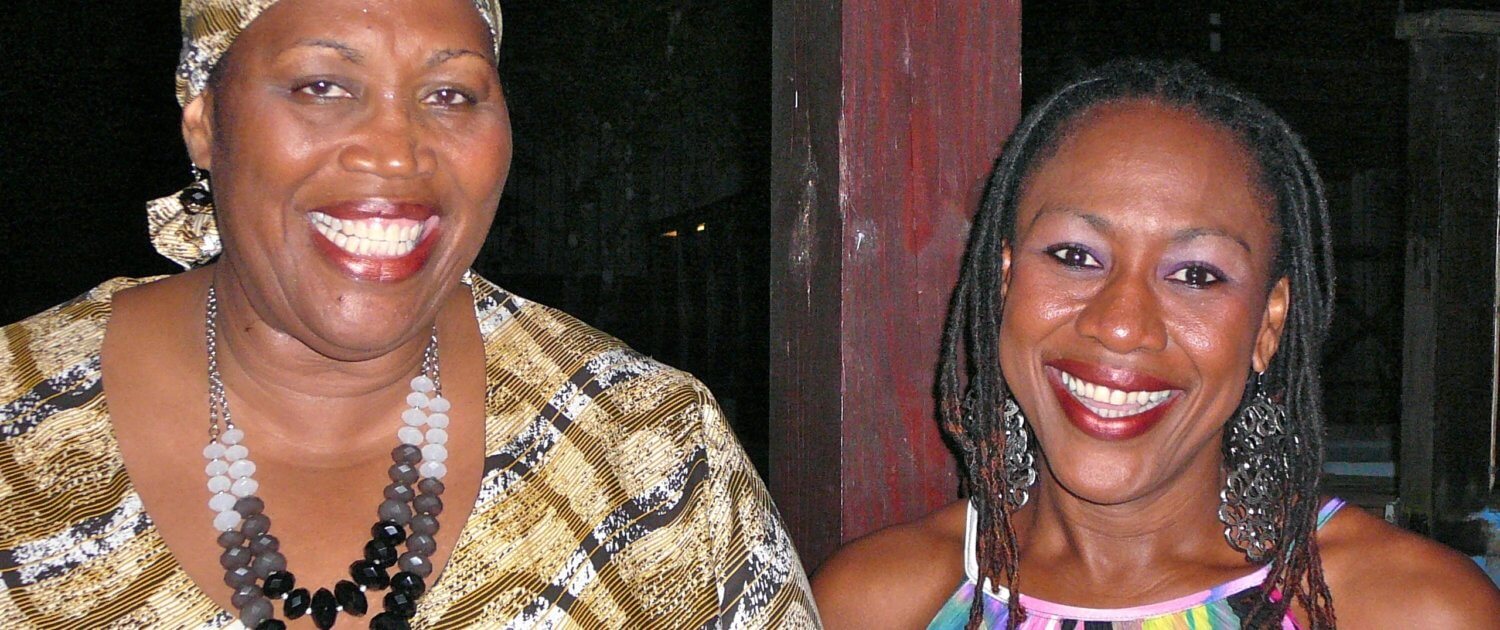
But, the true measure of St. Lucians’ character is how generations have navigated the inevitable and non-negotiable laws of impermanence and adversity. In other words, how they’ve built resilience. Even in the midst of tragedy, St. Lucians are quick to lend a helping hand and a word of encouragement. Chem says they’ve faced COVID-19 like every other catastrophe they’ve encountered: With optimism.
“It’s in our nature,” says Chem. “From the time we are born, our parents are socializing us to try to do better,” she explains. “For instance, in Anse la Raye, we’re the last to receive government aid. We are the most deprived district of the island. We try to deal with it by being very optimistic. So what we do is, we share. We look after each other. We come together with the little that we have,” she asserts.
“Our motto is: The difficulties in my path will not defeat my ambition,” Chem continues. “It was there at the St. Lucia Primary School when my mother attended. We always try to make the best of what we have. We cannot afford to give up. We have to continue fighting.”
“Our motto is: The difficulties in my path will not defeat my ambition.”
Chemida Popo-Cox, Global Volunteers St. Lucia Country Manager
“We know each other. I know 80 to 85 percent of the people living in the village. We rely on each other, and this is how our culture gives us strength. The (village) leaders are with you at the football field, they are with you at the bank, they are always there to lift you up rather than to tear you down.”
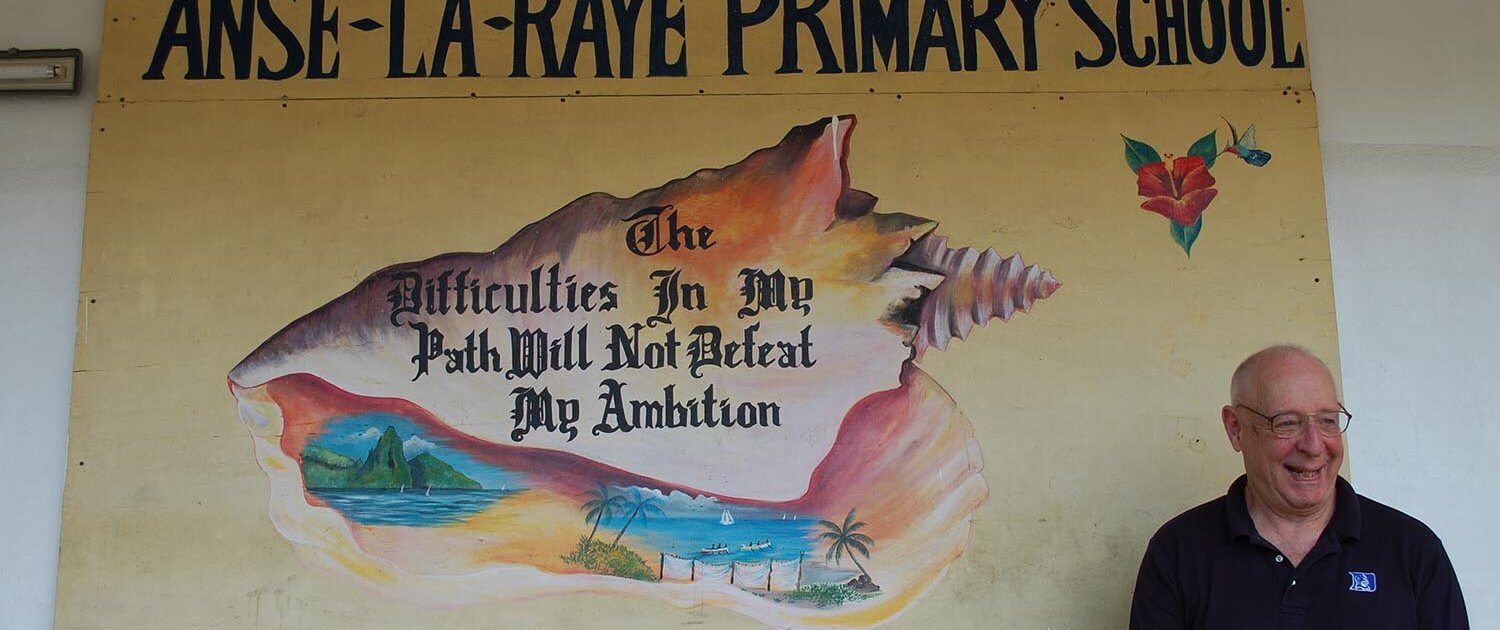
St. Lucians value stewardship, Camillus asserts. “It’s the reason I continue with the CARE program. The results you get after your struggle is what makes it worthwhile. For instance, the focus of the CARE program is to give students a second chance to improve their futures. It is in line with my personal and spiritual beliefs as well.” He likens the two-year course to growing a healthy crop – sewing seeds of knowledge among struggling students and watching them grow. “You make good investments of your efforts. The most challenging students, after you see what they’ve turned into, that‘s your satisfaction,” he says.
He offers the example of Magnus, a young adult graduate of the CARE program, who in recent years has become an advocate for other students and has advanced projects to get them off the streets and become productive citizens. He demonstrates how to pay it forward, says Camillus, and presents new ideas to strengthen the community. That’s stewardship in action; building capacity.
Chem says another sign of stewardship is residents getting back to the land. “We are starting to plant. People who have never farmed before are getting seeds to grow food. Where people have some land, they are planting kitchen gardens for the first time in their lives. And in the village where there is no land, this is where the EarthBoxes (from Global Volunteers) are so important. We’re hoping we can get more when our program resumes. We keep working. We keep looking ahead, never backwards.”
You Might Also Like:

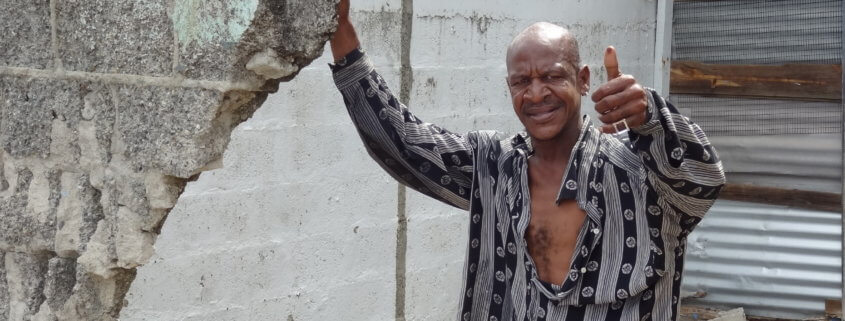 Global Volunteers 2020
Global Volunteers 2020

Leave a Reply
Want to join the discussion?Feel free to contribute!